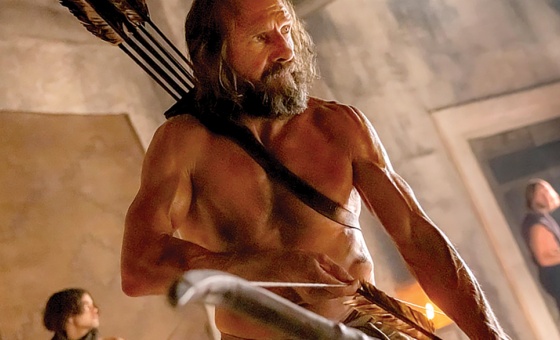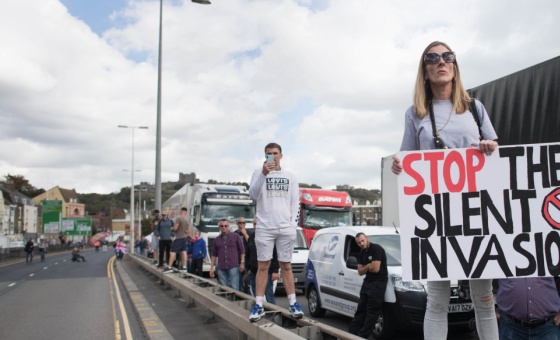This is the last article you can read this month
You can read more article this month
You can read more articles this month
Sorry your limit is up for this month
Reset on:
Please help support the Morning Star by subscribing here
WE in Scotland often congratulate ourselves on being an open, welcoming and diverse society. It’s certainly true that public statements on issues like racism and immigration from the Scottish political leadership tend to be a welcome antidote to the xenophobia that manifests itself all too often in the Westminster equivalent.
But we have our problems. Social attitude studies show that Scotland is largely the same as the rest of Britain in attitudes to issues like immigration. The poison of bigotry centred on the two biggest football teams just won’t go away and nobody seems to know how to tackle it. And we have racism, though we don’t always want to talk about it.
But in the last few weeks alone the local mainstream media has covered at least five stories of racist abuse in sport, several attacking the consultation on slave-trade connected statues in Edinburgh and some about racism in the community including an attack on a woman wearing a hijab. They are powerful reminders against complacency. Yes, there is condemnation, but that alone has limited persuasive effect.
Another way of lifting the public debate is to celebrate the other Scotland — the one that has a proud history of fighting inequality and racism, to confront the problems of today and build a focus for tackling them in the future.
That’s exactly what the Nelson Mandela Scottish Memorial Foundation is doing this week as it marks the anniversary of Mandela’s release from 27 years in prison on February 11 1990.
In its campaign for funds for a statue of Mandela in Glasgow’s Nelson Mandela Place — with an ongoing education and awareness raising project at its centre — it will be releasing a video about the anniversary in which the Foundation’s chair Brian Filling underlines the point.
“A permanent memorial to Mandela will not only remind Scots of their proud history of solidarity with the South African people, but it will also educate future generations to stand up against racism and prejudice wherever and whenever it rears its ugly head.”
The video summarises the decades-long struggle against racist apartheid in South Africa. A struggle that saw huge support from Scotland’s anti-apartheid movement with practical help, campaigning, a year long picket of the South African Consulate, the renaming of the consulate’s address as Nelson Mandela Place and Glasgow being the first in the world to give Mandela the freedom of the city in 1981, when he was still a political prisoner.
That action had a global impact and kick-started 2,264 mayors from 56 different countries signing a declaration to the UN in 1981 demanding his release. It also culminated in Mandela’s historic visit to the city in 1993 when he said the freedom award “made us realise that the world hadn’t forgotten us.”
The video doesn’t shy away from the difficult issues and the reality of struggle and sacrifice where tens of thousands, almost exclusively black, lost their lives. It covers Mandela’s letter about his refusal to accept his first conditional offer of release if he renounced the armed struggle that came after the Sharpeville Massacre by apartheid police.
Mandela’s letter from prison, read in the video by his daughter Zindzi to masses in Soweto in 1985, said he was surprised by the condition: “I am not a violent man,” he wrote, then talked about the decades of ignored peaceful initiatives to address the issue. “It was only when all other forms of resistance were no longer open to us that we turned to armed struggle.”
He questioned what freedom he was being offered when the African National Congress, “the organisation of the people,” was banned. He listed the many racist laws that denied basic human rights to the black majority — laws that the UN branded as a crime against humanity.
“I cannot and will not give any undertaking at a time when I and you the people are not free. Your freedom and mine cannot be separated.” It would be another five years before he accepted release on his terms.
The video is part of a series marking significant events like this that the foundation will link from the statue. It adds to a host of other educational material, including a west of Scotland development and education centre project which teachers and pupils have already welcomed, all designed to provide inspiration from history and an up to date focus for anti-racist activity.
And that activity is needed. The Trumps, Johnsons and a swing to the right have given the organised racists permission to climb out of the gutter. They have also exposed the “I’m not racist, but..” attitudes that betray how deep prejudice — unconscious or not — can lie without being challenged.
As the video concludes: “In these times, it has never been more important to keep our history of fighting inequality and racism alive for this generation and generations to come.”
John Stevenson is a retired Unison activist and a trustee of the Nelson Mandela Scottish Memorial Foundation — video premier Friday February 11 on www.mandelascottishmemorial.org.











